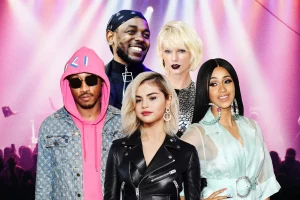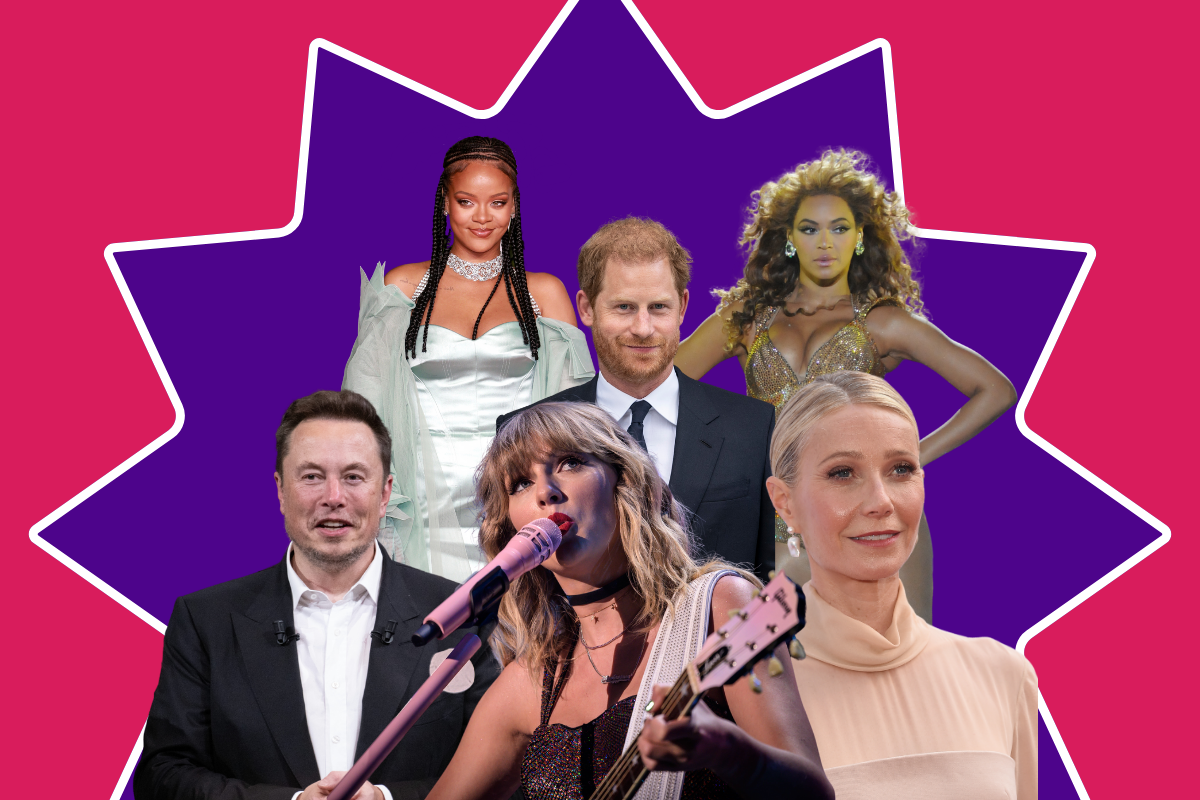Introduction
Celebrity culture is when famous people, like celebrities and influencers, are admired and closely followed by the public. This culture influences how people think, act, and buy products. Today, with the rise of social media and mass media, celebrity culture is more widespread than ever. It shapes how we view success, beauty, relationships, and even our own identities.
The Rise of Celebrity Culture in the Digital Age

In the past, celebrity status was typically reserved for those in traditional entertainment industries like film, music, and sports. However, with the advent of social media platforms such as Instagram, YouTube, and TikTok, celebrity culture has evolved. Now, individuals can gain fame overnight, often for reasons unrelated to traditional talent. As a result, celebrity culture has expanded beyond the confines of Hollywood to include a wide range of influencers, bloggers, and online personalities.
The Role of Celebrity Culture in Society

Celebrity culture plays a big role in shaping trends and social behavior. Celebrities often set fashion trends, promote new products, and even influence how people live their lives. People follow celebrities’ every move, which has turned them into major influencers in areas like beauty, lifestyle, and even politics. As a result, celebrities now hold power in guiding public opinion and shaping the media landscape.
How Social Media Shapes Celebrity Culture
Social media has played a huge part in changing celebrity culture. Celebrities now have a direct way to connect with their fans. Platforms like Instagram, Twitter, and TikTok allow stars to share their lives, interact with followers, and promote brands. This has made celebrities feel more relatable and accessible to their audience. Fans can see the everyday moments of their favorite stars, which creates a sense of intimacy and connection that was never possible before.
The Influence of Celebrity Culture on Society

Celebrity culture can have a big impact on both individuals and society. These effects can be both good and bad, depending on how celebrities are viewed by their fans.
1, Shaping Social Norms and Behavior
Celebrities often become role models, especially for younger people. What they do, say, and post on social media can influence what is seen as “acceptable” or “cool.” For example, celebrities often set trends in fashion, lifestyle, and even politics. When they support certain causes or products, they can change public opinion. Celebrities have played a big role in raising awareness for movements like environmentalism and body positivity.
2. Fostering Materialism and Consumerism
Celebrity culture can make people more focused on material things, especially younger people. Celebrities often show off their expensive clothes, brands, and vacations on social media. This can lead their followers to think that having these things is what makes someone successful or happy. As a result, people may buy things to try to copy the lifestyles of the rich and famous.
3. Impact on Mental Health
Celebrity culture can be inspiring, but it can also hurt mental health. Seeing perfect lives and unrealistic beauty standards all the time can make people feel bad about themselves. This is especially true for young people who are still figuring out who they are. Comparing themselves to celebrities can lead to feelings of insecurity and low self-esteem.
The Power of Social Media in Celebrity Culture

Social media has changed celebrity culture in many ways. Platforms like Twitter, Facebook, and Instagram allow celebrities to connect directly with their fans, making their relationships more personal. This has also changed the balance of power, as fans can influence celebrities and vice versa. The rise of influencers, who gain fame through social media, has blurred the lines between traditional celebrities and internet stars.
1. Direct Interaction with Fans
Social media has made it easier for celebrities to talk directly to their fans. They share moments from their daily lives, offer personal thoughts, and respond to comments. This creates a closer connection, making celebrities feel more relatable. However, it also puts pressure on them to keep up a perfect image, as fans expect constant interaction.
2. Influencer Culture
Influencer culture, fueled by social media, has mixed fame, advertising, and entertainment. Influencers, who may not have formal training or special talents, can gain millions of followers. Brands often work with influencers to promote products, and followers turn to influencers for advice on everything from fashion to lifestyle.
The Positive Aspects of Celebrity Culture

Even though celebrity culture can have negative effects, it also has positive sides that can help society.
1. Social Causes and Charity Work
Many celebrities use their fame to support important causes. They raise awareness about issues like climate change, gender equality, and mental health. Celebrities can bring attention to these causes, which might not get noticed otherwise. Their charity work and fundraising campaigns can encourage others to get involved and help too.
2. Inspiring Aspirations and Dreams
Celebrities often represent success, creativity, and hard work. They share stories of overcoming obstacles, which can inspire others to follow their dreams. Whether it’s a musician just starting out or someone wanting to start a business, the stories of celebrities can give hope and motivation to people who want to achieve big things.
The Negative Aspects of Celebrity Culture

While there are positive sides, the negative effects of celebrity culture should not be ignored.
1. Unrealistic Standards and Expectations
One of the most harmful parts of celebrity culture is the unrealistic standards it creates. Celebrities often show perfect bodies and flawless skin, which most people can’t achieve. The pressure to look like them can lead to mental and physical health problems, like anxiety and body image issues.
2. Dehumanizing Celebrities
Even though celebrities are treated like they are perfect, they are still human. The constant attention and invasion of their privacy can be mentally and emotionally draining. Tabloid culture and social media “cancel culture” make things worse by turning small mistakes into big public scandals.
The Pressure of Maintaining a Public Image

With fame comes pressure. Celebrities are often expected to maintain a perfect public image, especially on social media. This can be stressful, as they feel the need to look and act a certain way to please their fans. The pressure to always appear happy, successful, or attractive can lead to mental health struggles for many stars. They are constantly judged by their appearance and behavior, which can feel exhausting. This pressure can sometimes cause them to make decisions that are not in their best interest.
The Challenges of Celebrity Culture
While celebrity culture has benefits, it also comes with challenges. One major problem is the unrealistic standards it sets for beauty, success, and happiness. Many celebrities present a perfect image on social media, which can cause feelings of inadequacy among their followers. This can lead to issues like low self-esteem, body image problems, and mental health struggles. Additionally, the pressure on celebrities to maintain a flawless image can be overwhelming and lead to negative effects on their personal lives.
The Future of Celebrity Culture

The future of celebrity culture seems closely tied to the growth of social media and digital platforms. As technology advances, we may see even more influencers rise to fame, and celebrities may become more connected to their fans than ever before. However, there may also be more emphasis on authenticity, with fans seeking realness and transparency from their idols. With a growing focus on mental health and self-image, celebrity culture might shift towards promoting healthier and more balanced lifestyles in the years to come.
Comparative Table: Celebrity Culture vs. Traditional Fame
| Aspect | Celebrity Culture (Modern) | Traditional Fame (Pre-Social Media) |
|---|---|---|
| Source of Fame | Social media, internet virality, reality TV | Film, music, sports, and traditional media |
| Connection with Fans | Direct, often through social media interactions | Limited to interviews, public appearances, and fan mail |
| Impact on Consumer Behavior | Strong, with brands using celebrity endorsements | Moderate, mainly from TV or magazine endorsements |
| Influencer Role | Prominent; many influencers now hold significant power | Less relevant; traditional media figures dominated fame |
Analysis Table: The Impact of Celebrity Culture
| Impact Area | Positive Impact | Negative Impact |
|---|---|---|
| Mental Health | Can inspire and motivate people | Creates unrealistic beauty standards, leading to self-esteem issues |
| Social Behavior | Promotes social causes, charity work, and awareness | Promotes materialism and superficial values |
| Economic Influence | Boosts industries through endorsements and sponsorships | Consumer pressure leads to unsustainable spending habits |
| Cultural Influence | Encourages diversity, social change, and progress | Reinforces harmful stereotypes and unrealistic ideals |
Conclusion: The Double-Edged Sword of Celebrity Culture
Celebrity culture is a double-edged sword. On one hand, it can promote positive social change, inspire individuals, and provide an economic boost through consumer behavior and brand endorsements. On the other hand, it can foster unrealistic expectations, contribute to mental health struggles, and reduce individuals to mere products for public consumption.
As we continue to navigate the effects of celebrity culture, it’s essential to strike a balance between admiration and critical thinking. It’s important to celebrate the achievements of celebrities while acknowledging the need for authenticity, humility, and self-worth in a world heavily influenced by public figures.




